How to avoid a raccoon raid at camp
Raccoons aren’t typically vicious, but they can still pose a hazard to your health – here’s how to keep raccoons away from your campsite
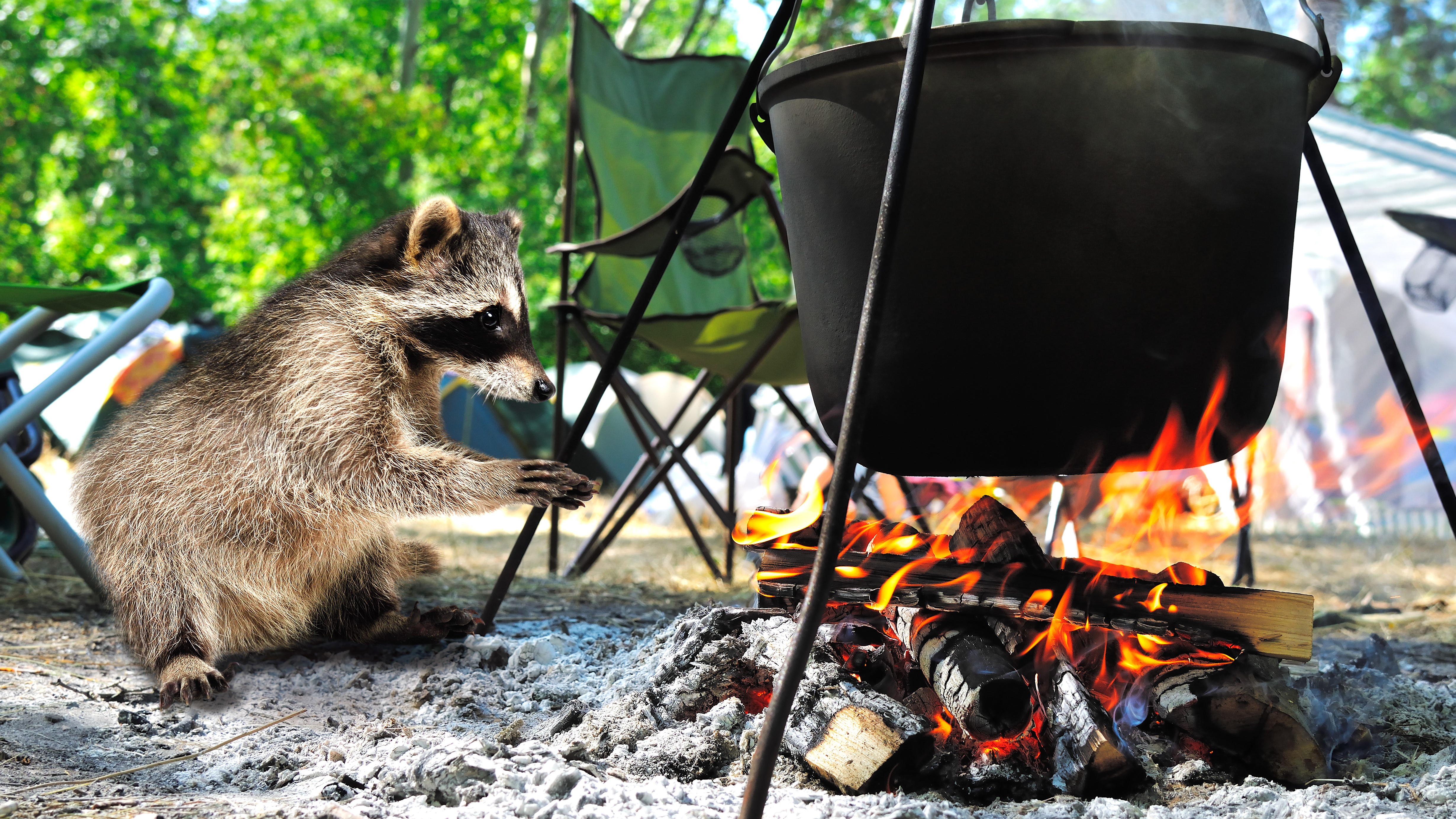
Anyone who's camped in North America has probably experienced this scenario. You’re snoozing away in your tent at night when you’re suddenly awakened by the distinct sound of sniffing and scratching as an unseen but presumably ravenous mammal plunders your campsite in search of something tasty. Like human flesh.
A bear! you think, reaching for your camping knife.
But then you remember you’re in Kansas and the chances of a bear in your campsite are, well, close to none. Though bears can be found in a lot of the places in the US where we all like to camp – and instill fear in many campers – the chances are much higher of you coming face-to-face with a raccoon when you pop your head out your tent.
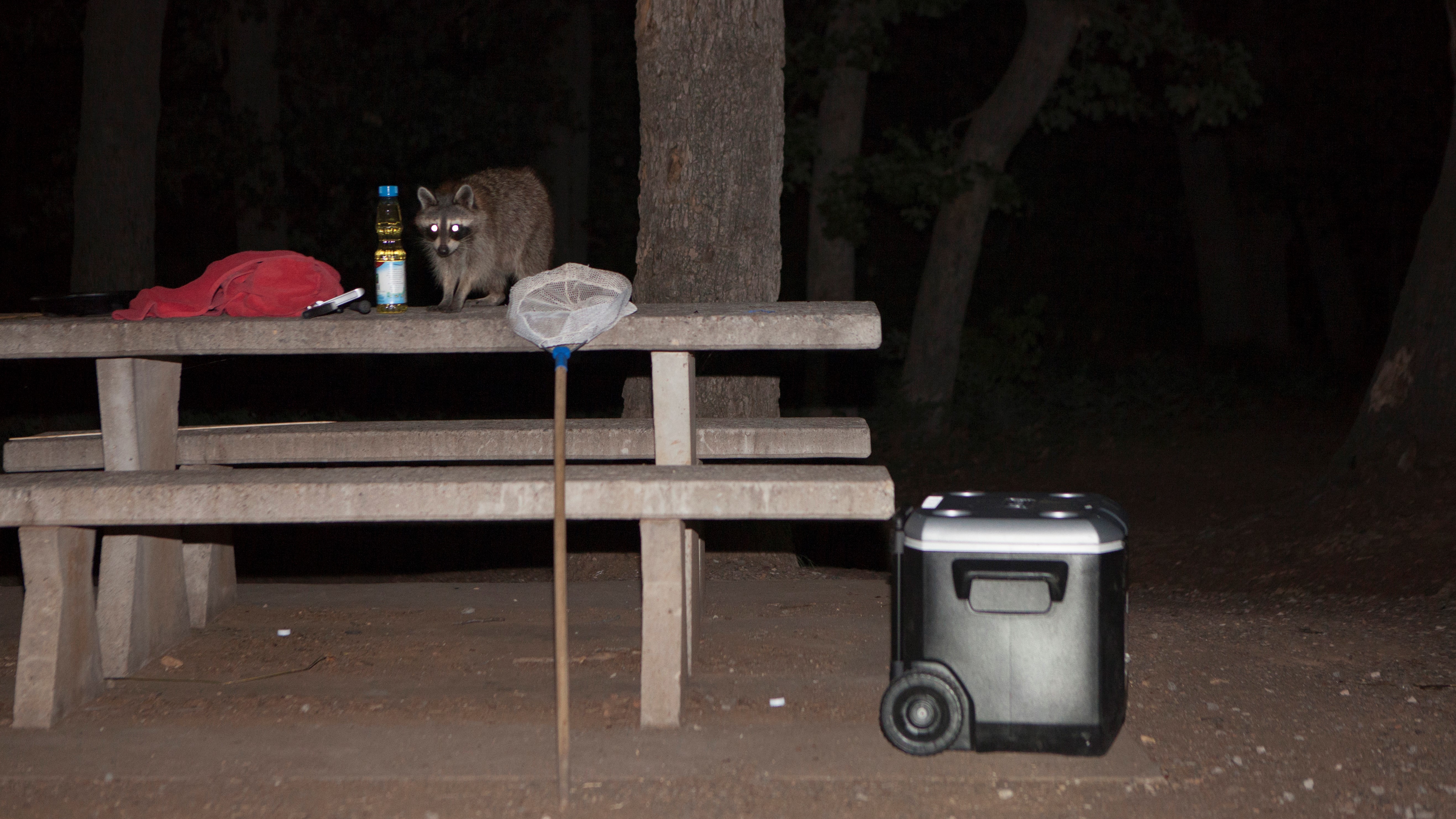
Except for a few spots in the high Rockies and the Southwest, these bandit-faced mammals are found all over North America. Squat, with striped bushy tails and black masks around their eyes, these nocturnal mammals live in our forests, prairies and marshes where they forage for small aquatic creatures, mammals, fruits and plants. They live in our cities where they feast on our garbage. And if they happen to be walking through the forest and pick up the scent of last evening’s camping meal, they’ll certainly come and explore your campsite, which is not really something you want.
Read on to find out why the only raccoon at your campsite should be the Davy Crocket hat on your head, and how to keep raccoons out of your campsite.
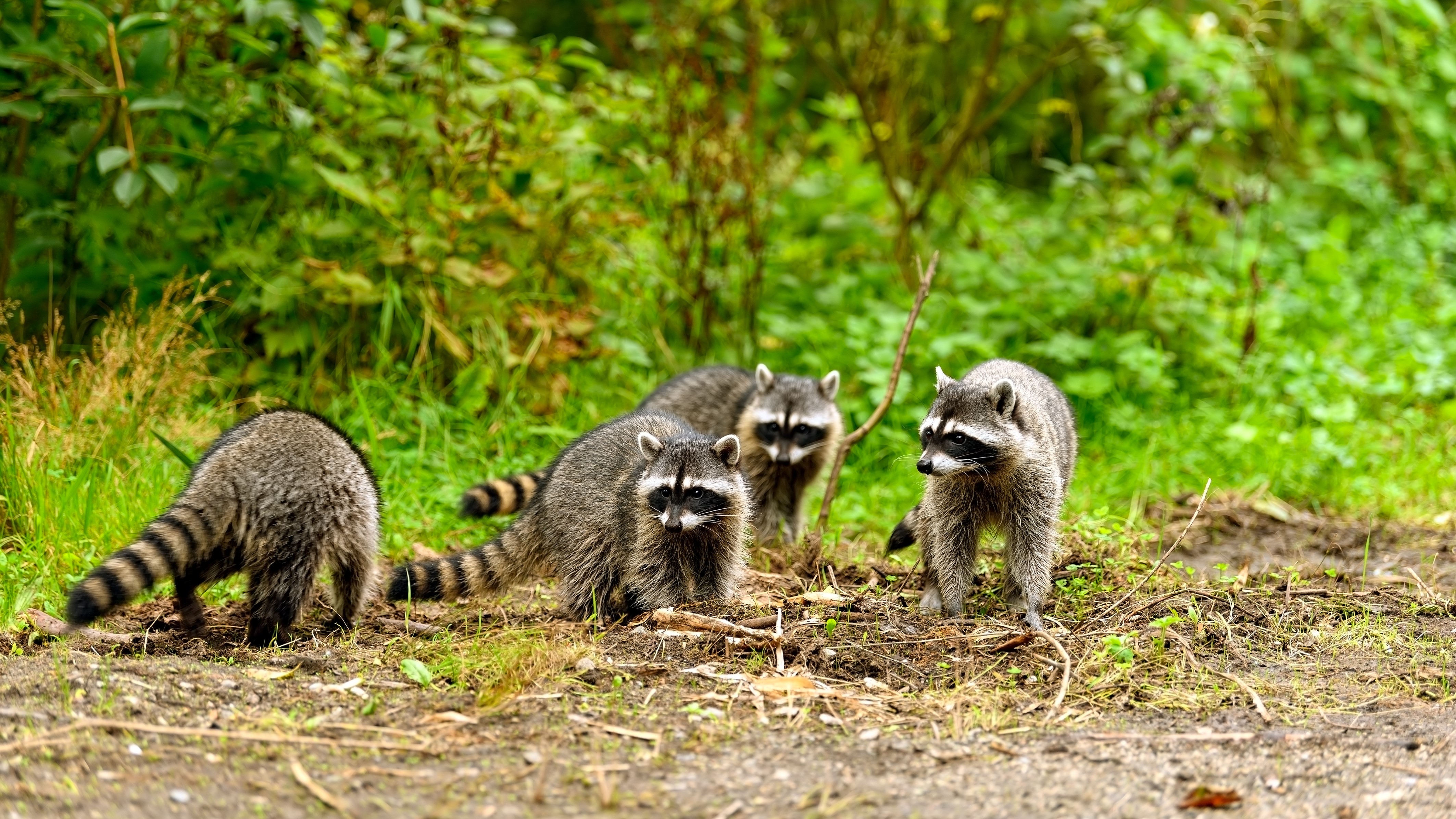
Are raccoons dangerous?
Raccoons aren't big and burly like bears – in fact, they’re the size of a small dog – but many of us fear them nonetheless. It might be the association with cartoon bandits, those sharp nails and teeth or their screeching, snarling and hissing that has you quaking inside your sleeping bag – but are raccoons really that fearsome?
Healthy raccoons are highly unlikely to attack humans, according to the Humane Society, although they are known to attack pets, so if you’re camping with your dog, you’ll want to be extra cautious. Otherwise, where raccoons can pose a problem to human health is as carriers of disease. Raccoons are a primary carrier of rabies, though their strain of rabies tends to kill them within a couple of days and is not usually harmful to humans, with only one human death from raccoon rabies back in 2003. However, they are also known carriers of roundworm, which you can contract from contact with their feces, and the bacteria leptospirosis, which you can contract through contact with their urine. Both can prove fatal, so even if they’re not as imposing as grizzly bears, you definitely don’t want to invite raccoons into your campsite.
All the latest inspiration, tips and guides to help you plan your next Advnture!
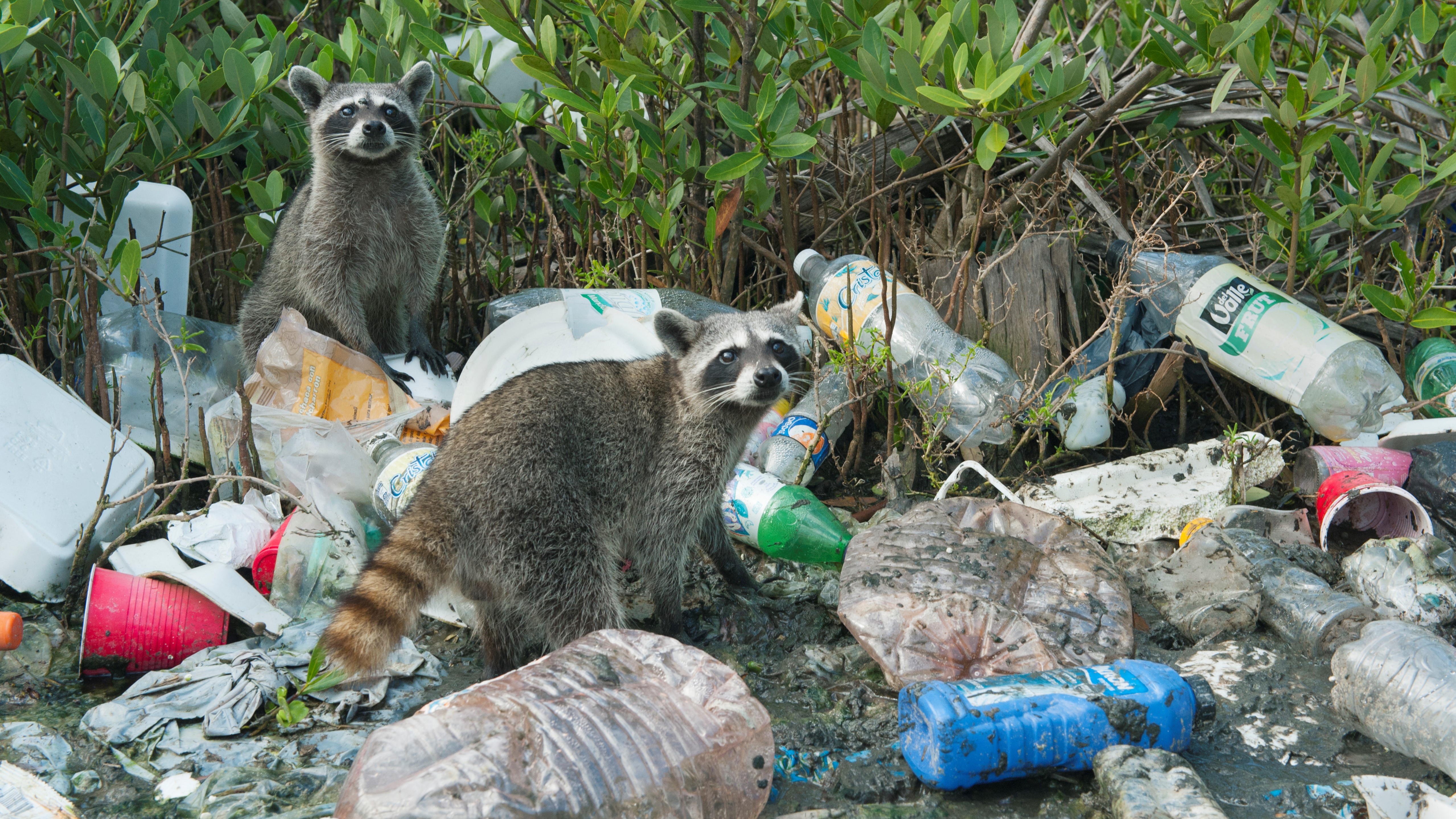
How to keep raccoons away from your campsite
When it comes to keeping pretty much any wildlife away from your campsite, from bears all the way down to ants, there’s always going to be advice that involves spraying or spreading certain deterrents around, but that goes against the principles of Leave No Trace, it might not work anyway, and you could end up harming local wildlife (or your own kids and pets). The best approach, as always, is to practice prevention. What draws raccoons to your campsite isn’t a desire for human flesh, it’s the possibility of eating your food. Handle your food and trash properly, and you’ll be able to enjoy a few nights in the wild without Rocky poking his head in.
1. Avoid nuisance areas
First off, avoid areas known for nuisance raccoons. Raccoons will build dens just about anywhere, but if there is a large nursery of raccoons nearby, better to leave them to it. There’s a good argument for dispersed camping and backpacking here too, since even if you handle yourself responsibly in the frontcountry, you can’t account for the behavior of the other 30 campers at a developed campsite.
2. Seal your food properly
Just like bears, raccoons will come knocking if there’s nosh on the menu, so practice good food safety. If you’re camping in bear country, store all of your food in a bear canister outside of mealtimes, and everywhere use a locking or latched camping cooler that their claws won’t be able to open. If you’re car camping, your food should go in your car overnight since unlike bears, raccoons won’t be able to break into your car.
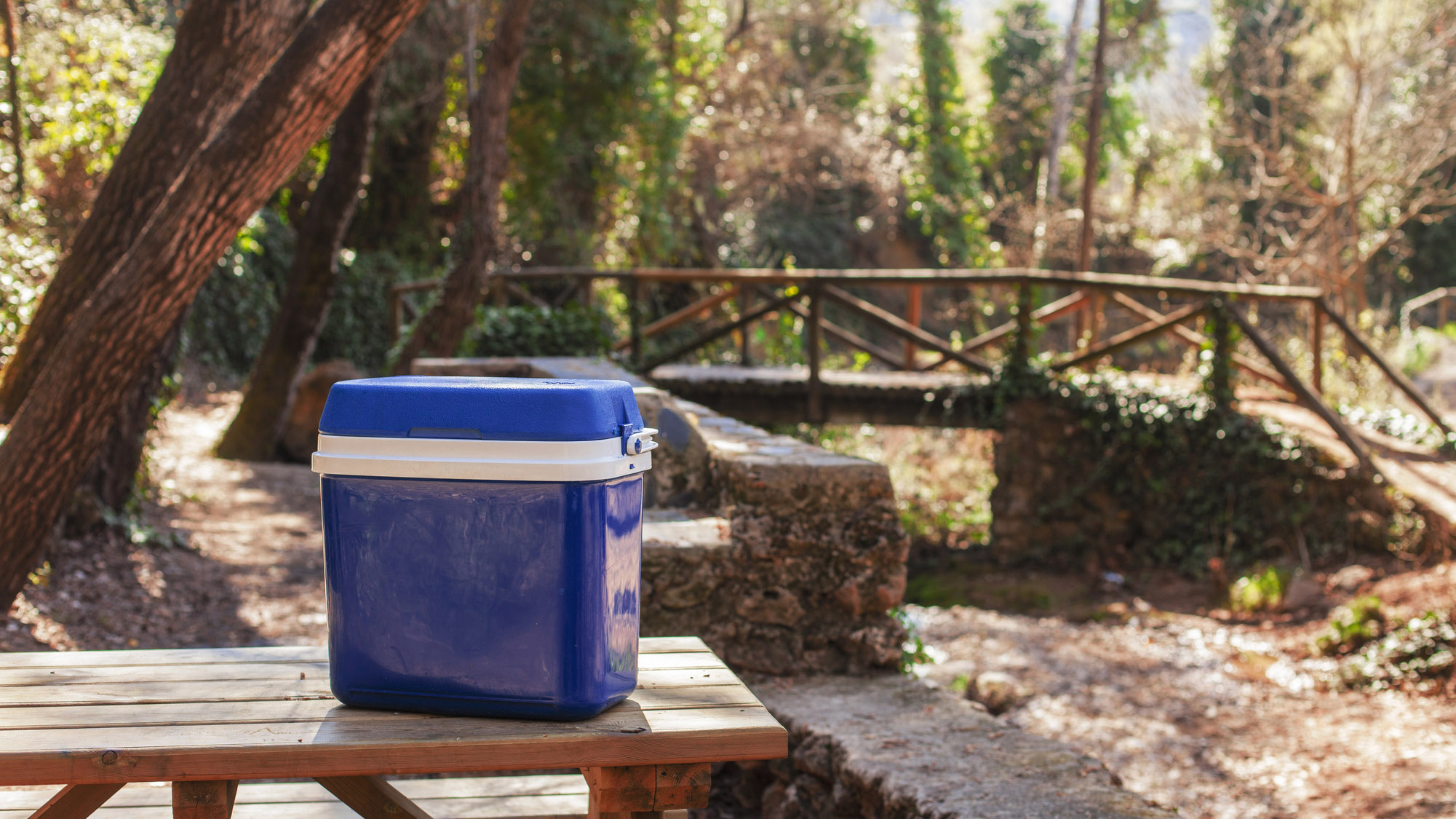
3. Handle your trash
No one wants to deal with garbage late at night when you’re tired from exploring outdoors all day, but even that empty chip packet or the plastic wrap from your hot dogs is enough to bring the raccoons round for dinner. Rather than bringing one giant trash bag and leaving it out for your entire camping trip, the best approach is to bring a small bag for each night and dispose of it properly before going to bed. Use the trash cans provided if you’re at a campground, or store it in your car.
If you’re out in the backcountry, don’t pack trash away in your backpack since they could go rooting around and cause some damage, and don’t burn your trash, please. The best approach is to hang it above the ground in a bear bag.
4. Leave the smelly stuff at home
Camping is a good excuse to get away from artificial scents anyway, and since it’s possible that smelly toiletries might attract a confused raccoon, it’s yet another reason to leave them at home. If you must bring some toiletries such as chapstick, sunscreen and deodorant, make them the non-scented variety and pack your yummy toothpaste away with your food.
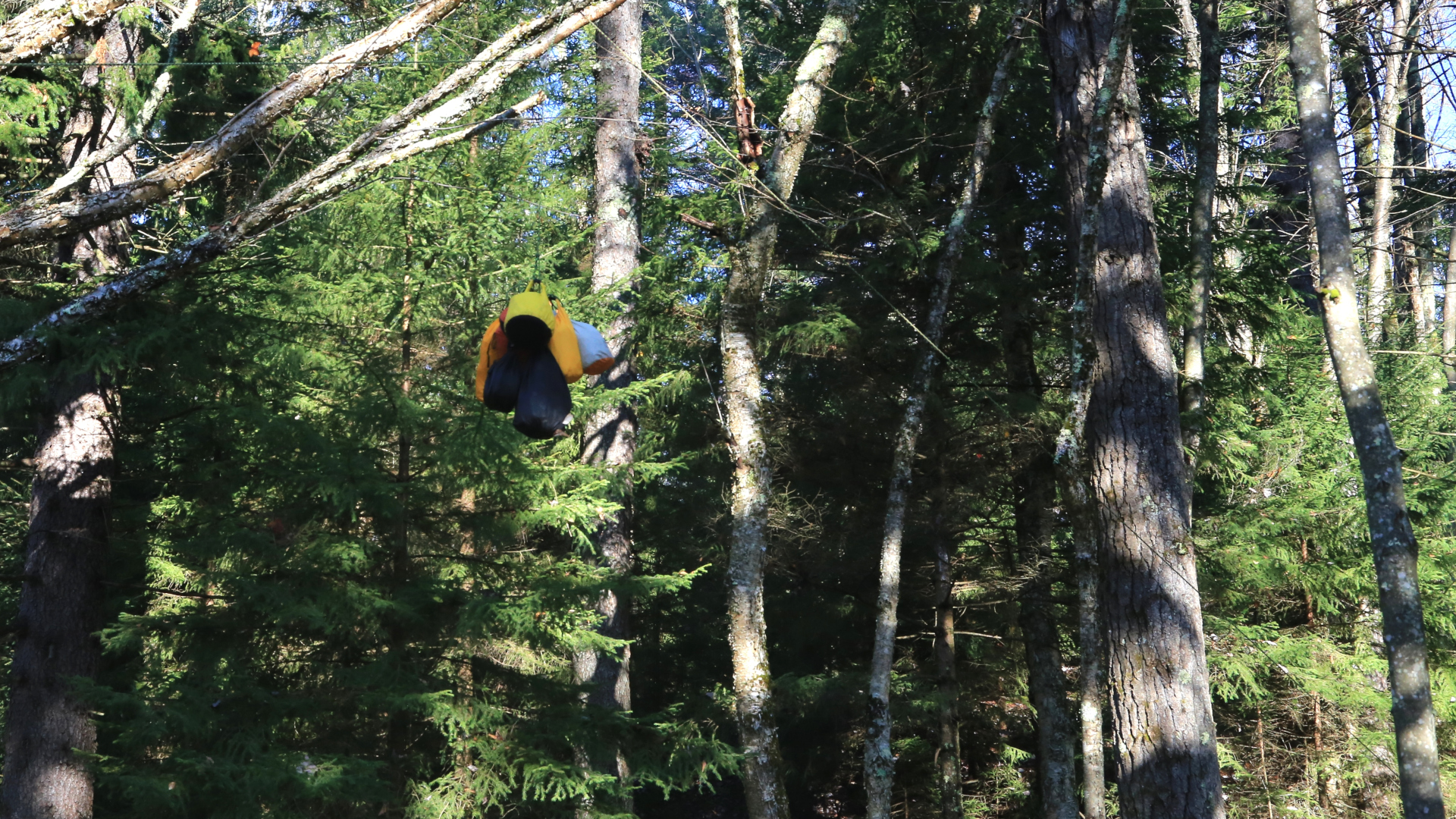
5. Make some noise
Even if you’ve practiced all of the above, some inquisitive raccoons still might come and take a gander, especially if they’ve got the late night munchies and come to associate humans with food. If you wake up to a raccoon raid, make some noise. Bang a couple of camping pots or trekking poles together, talk loudly or blow your hiking whistle a few times. This might not work with raccoons back in town, but wild ones won’t be used to such a din and it should be enough to startle them back into the shadows.
Julia Clarke is a staff writer for Advnture.com and the author of the book Restorative Yoga for Beginners. She loves to explore mountains on foot, bike, skis and belay and then recover on the the yoga mat. Julia graduated with a degree in journalism in 2004 and spent eight years working as a radio presenter in Kansas City, Vermont, Boston and New York City before discovering the joys of the Rocky Mountains. She then detoured west to Colorado and enjoyed 11 years teaching yoga in Vail before returning to her hometown of Glasgow, Scotland in 2020 to focus on family and writing.

